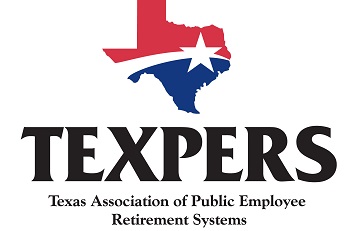Jordan Brownwood with the Texas Public Policy Foundation wrote a dismissive article, “Inconclusive TEXPERS poll confirms…nothing,” that was long on implied pejorative and short on facts.
For instance, Brownwood said “Without guaranteed pension benefits, TEXPERS would be forced to cede significant power to private investors and the individuals they currently represent.” It’s really difficult to deconstruct that sentence and respond to it appropriately because it displays a very fundamental ignorance of what TEXPERS is and who we represent. Our website is www.TEXPERS.org, for Mr. Brownwood’s future reference.
Nonetheless, if we’re interpreting his statement correctly, Mr. Brownwood should know that none of our members (the pension systems themselves) have members (policemen, firefighters, and municipal workers) who are currently asking for 401(k)s. If they were asking for it – because of the poor performance of their plan administrator or the possibility that the benefits wouldn’t be there when they retire – then we would respond to our members’ requests for private investments. That’s just not the case. Plans are performing well and most cities and their pension systems have good plans for fulfilling their actuarial obligations. If there’s another interpretation to Mr. Brownwood’s assertion, we’d be happy to address it.
And then Mr. Brownwood wants his readers to rethink our wording of questions. He says:
The first question in the poll asks respondents if public employees should give up their current defined benefit pensions for a 401(k) plan.
That’s not what we asked and that’s not what we said in the press release.
The exact question was “Public employees who receive defined benefit pensions should be forced to change to 401(k) type plans like most employees in the private sector.” Our question was about the assertion of legislative force by elected officials to change the current pension option for public employees. Like we said in the release, 43% of the public disagreed with that statement while only 28% agreed. Another 11% weren’t sure. It’s clear that forcing public employees into 401(k)s is not an action that would be well-received by the general public – even those who themselves own and use 401(k)s!
Then, in the same paragraph as his statement above, Mr. Brownwood says that:
Since a majority of Texans agreed that public employees have the right to continue with their contractually-obligated pensions (which few are suggesting), TEXPERS makes the assumption that Texans are opposed to pension reform. How different do you think the responses would have been if worded something like: “Using a portion of your personal income, would you be willing to promise every public employee in Texas a retirement package worth over $1 million?” I doubt very many respondents would have agreed, yet it is one way (albeit a very different way) of asking the question.
His question’s setup, “Using a portion of your personal income,” is the way that he wants you to think about the taxes required to pay for employee benefits. In my view that’s a pretty aggressive attempt on his part to skew poll results to fit a “what’s yours is yours-what’s mine is mine” political point of view. Skewing results by inserting political viewpoints is not something we tried to do with our poll.
And in the second part of his sample question, Mr. Brownwood engaged in hyperbole and scare tactics. There is no proposal by TEXPERS or any of its members to promise every public employee in Texas retirement packages over $1 million. That’s ludicrous. Again, Mr. Brownwood shows his inclination to skew questions with non-facts that align to his political views.
The reality is that after 15-20 years of service, with their and their employers’ matching funds, most public employees retire with $200-300,000 in their accounts and receive on average $2-3,000 per month, if that. And since most don’t pay into Social Security over their working lives as public employees, that’s all they receive in their “Golden Years.” Not so ‘golden’ if you ask me.
We enjoy vigorous discussion of these types of issues, but we would also like everyone to play on a fair and level playing field. Mr. Brownwood does not appear to want that. – Max Patterson
